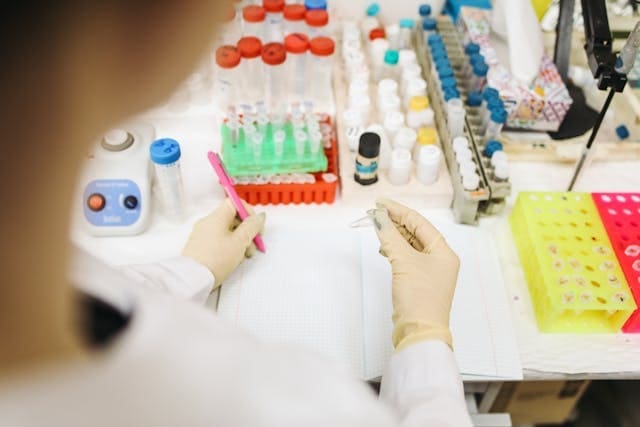Sensation: Sustainable process revolutionizes synthesis of bioactive molecules
Chemists at Friedrich-Alexander-Universit├żt Erlangen-N├╝rnberg (FAU ) have developed a groundbreaking process that enables the production of bioactive cyclic amine compounds without external enzyme or metal catalysts, as reported in the renowned scientific journal “Angewandte Chemie“. By using an organoautocatalyst formed in situ, a highly efficient synthesis was achieved under mild conditions, according to the publication.
Cyclic amines, ring-shaped molecules consisting of nitrogen and carbon atoms, are becoming increasingly important in medicine and biochemistry, especially dihydropyridine, a six-membered ring with five carbon atoms and one nitrogen atom. This compound is used as an antihypertensive and shows potential for photoelectronic materials due to its adjustable fluorescence. The researchers explained that the biological properties of dihydropyridines can be precisely controlled by specifically attaching different molecular units to the nitrogen atom.

Previous synthesis methods for cyclic amines, in particular transamination reactions to vary the substituents on nitrogen, required complex enzyme catalysts or expensive, often toxic metals. These reactions usually took place under extreme conditions, which made the synthesis complex, costly and environmentally harmful. Toxic waste led to problems in pharmaceutical production in particular, it was said.
The FAU researchers overcame these hurdles with a novel approach that completely dispenses with external catalysts. They relied on pyrrolidinium salt, an ammonium salt formed during the synthesis, which accelerates the reaction as an organic autocatalyst. The reaction proceeds in a domino-like process at room temperature and achieves yields of up to 95 percent. This process opens up new avenues in the chemistry of carbon-nitrogen bonds, the scientists emphasized.
The organoautocatalytic system marks significant progress towards green chemistry. It offers a sustainable strategy for accessing complex nitrogen-containing bioactive molecules and drugs without enzymes, metals or aggressive reagents. The findings contribute to the understanding of substitution in carbon-nitrogen compounds and lay the foundation for the development of next-generation environmentally friendly synthesis methods, it concluded.
Original Paper:
Read also:
Sensation: Total synthesis of disorazol Z1 successful – MedLabPortal
Editorial office: X-Press Journalistenb├╝ro GbR
Gender note. The personal designations used in this text always refer equally to female, male and diverse persons. Double/triple references and gendered designations are avoided in favor of better readability.




